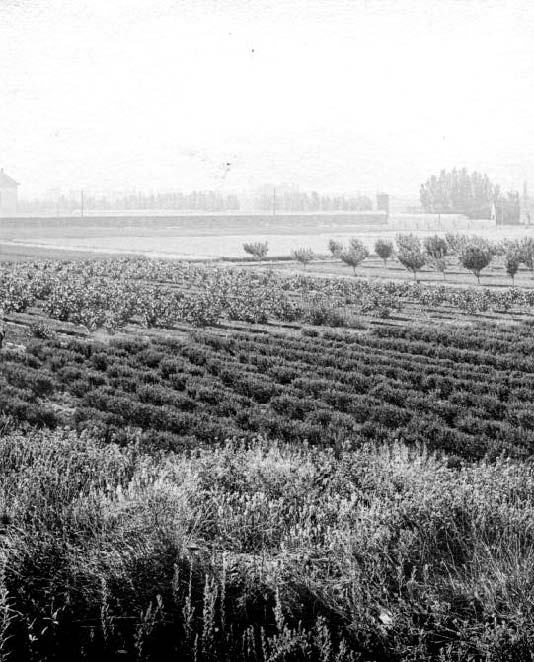edible traditions
ROOTS OF EDUCATION
Agricultural education has a long and important local history.
WRITTEN BY JEN A. HUNTLEY
PHOTO COURTESY OF SPECIAL COLLECTIONS DEPARTMENT, UNIVERSITY OF NEVADA, RENO
It’s easy to forget, in the excitement over edible schoolyards and other food-based curricular innovations, that agricultural education has a long and important history in Nevada and the West. Crops, soils, animal husbandry, and business practices engaged Nevada students in hands-on, practicum-based learning experiences from the 1920s, both in high schools and in University of Nevada, Reno classes. These educational experiences contributed to the growth of agriculture in the state while building important knowledge about the specific regional challenges of farming in the high desert. Through master gardener programs, extracurricular programs (such as Future Farmers of America and 4-H) and extension classes, this knowledge provides a critical component for the success of edible schoolyard programs.
Aspiring farmers in Northern Nevada can thank one Vermont congressman, Justin Smith Morrill, who introduced legislation 150 years ago to establish the land-grant colleges focused on agriculture and engineering. Morrill imagined that such colleges would provide opportunities for economic success to the children of farmers and miners, traditionally victims of perpetual poverty in most human societies. These land-grant colleges had (and continue to have) an explicit public-service mission, and UNR is no exception. From the high school agriculture courses of the 1920s to the experts and master gardeners supporting the development of school garden curricula today, university employees have provided training, research resources, and experimental testing for the general public as well as enrolled students. With the current interest in local and organic farming, the need for research and innovation continues unabated.
Across the nation this year, celebrations of the Morrill Act anniversary note the almost incalculable positive impact the land-grant colleges have had, not only on farming and engineering but also on the ability for Americans in any field to lift themselves out of poverty through hard work and education. However, the steady erosion of taxpayer support for state colleges means that tuition at many of them approaches the rate of private schools, threatening the dream for future generations. The rise of edible schoolyards marks a hopeful turn toward the future of agricultural education. We also profit from remembering its past.
Jen A. Huntley is professor of humanities at Truckee Meadows Community College, and author of The Making of Yosemite: James Mason Hutchings and the Origin of America’s Most Popular National Park.


